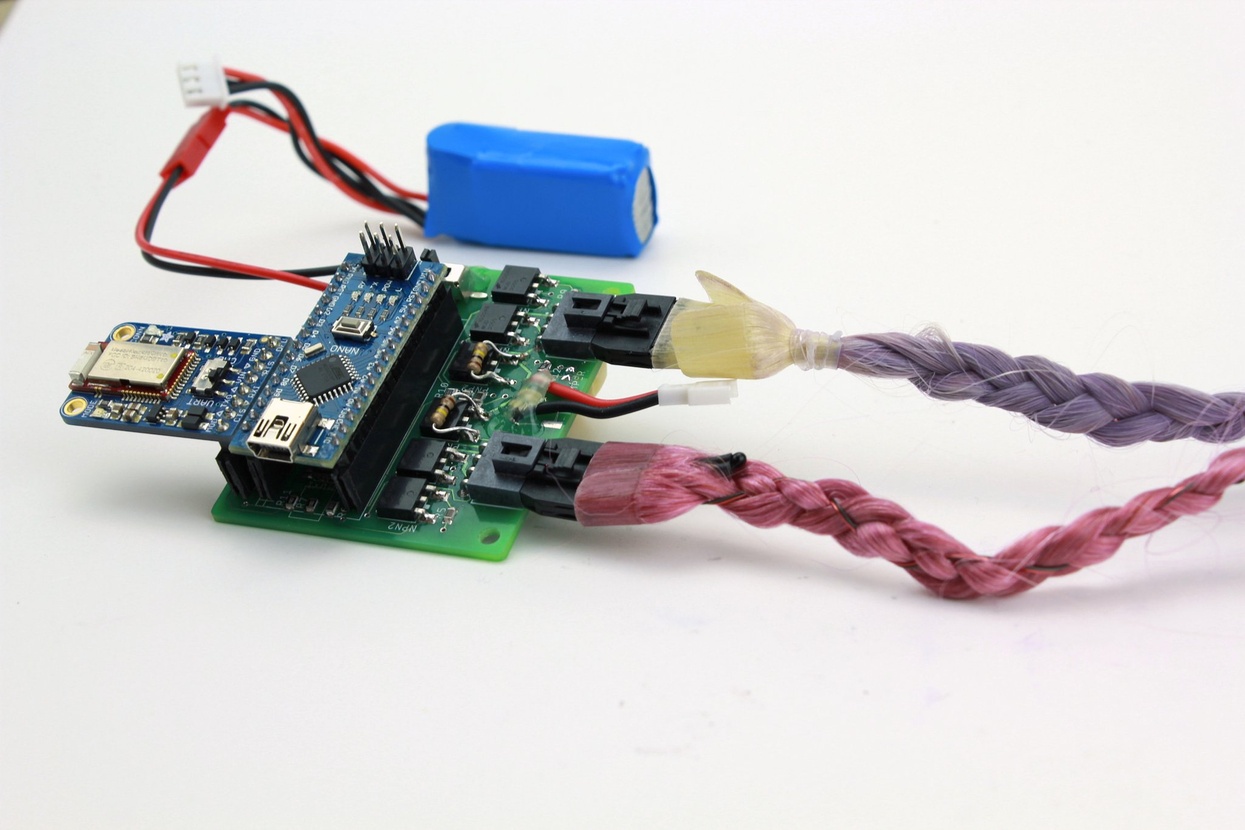Announcing the Spring 2018 BCNM Conference Grant Recipients!

Each of the following students have received funding to help defray the costs of presenting their research at the premiere conferences in their fields! We’re thrilled to be supporting our graduates as they travel across the globe to share their scholarship.
Ritwick Banerji — for the Joint Meeting of the American Ethnological Society and the Society for Visual Anthropology in Philadelphia, PA. In his paper, "Resembling Repugnance: Beyond the 'Uncanny Valley' in the Algorithmic Ethnography of Human Sociality," Banerji expands upon the age-old idea that the contempt for humanlike technology stems from its failure to emulate humanity through real-time interactions. He proposes, however, that subjects feel repulsed because its behavior simultaneously reminds them of familiar, unfavorable human qualities.
Harry Burson — for the Society for Cinema and Media Studies Annual Conference in Toronto, Canada. Eschewing vision as an appropriate means to illustrate the complexity of new informational and social structures in "Hearing the Cloud: Sound, Environment, and Representing the Supersensible," Burson dives into how contemporary sound art and audiovisual media fill in the gaps of representing this growing knowledge. To support his argument, he examines the auditory approaches of different sound artists such as Christina Kubisch, Stan Schaff, Amalia Pica, Alexander R. Galloway, and more.
Kaitlin Forcier — for the Society for Film and Media Studies Annual Conference in Toronto, Canada. Forcier will be utilizing her research, "Distant Vision: Archaeology of the Videophone," to explain how the architecture surrounding the videophone suggests "a layer of abstraction and disconnection" despite claims stating otherwise. With history and artworks at her disposal, Forcier hopes to see the broader implications of this research applied to issues of proximity, intimacy, and temporality in digital media.
Noura Howell — for the CHI Conference on Human Factors in Computing System in Montreal, Canada. Howell sought an alternative to machines interpreting emotions by creating another emotional biosesing display in the form of Ripple: a shirt that changes its patterns depending on the user's excitement. Participants had mixed emotions, but nonetheless demonstrated the biopolitics that gave Ripple its authority in determining how users felt.
Malika Imhotep — for the American Association of Geographers Conference in New Orleans, Lousiana. Imhotep will be a part of a roundtable on "Black Queer Spatialities," speaking with an emphasis to the queer landscape of bounce dancing in New Orleans, Lousiana. She will draw from her research on the connection between the African Diaspora and the global spread of twerk in regards to the black female body.
Yifei Liu — for the Human-Computer Interaction International Conference. In her paper, "Usability Evaluation for Drone Mission Planning in Virtual Reality," Yifei evaluates the usability of VR interfaces used to control drones through working with UC Berkeley’s Immersive Semi-Autonomous Aerial Command System (ISAACS) project, which experiments with new ways for humans to interact with drones in a VR environment. Their experiment setting focuses on the drone mission planning phase and on creating an onboarding experience for new users. They develop a usability evaluation framework for the ISAACS VR system, and use this framework to conduct two iterations of user testing and prototyping with a human-centered design process.
Molly Nicholas — for the CHI Conference on Human Factors in Computing Systems in Montreal, Canada and the Tangible, Embedded and Embodied Interactions Conference in Stockholm, Sweden. Her research for the conferences, "AlterWear: Battery-Free Wearable Displays for Opportunistic Interactions" and "HäirlÖ: Human Hair as Interactive Material" respectively, explores the wearable technology space by developing applications in ways that were previously unthought of.
Will Payne — for the American Association of Geographers Conference in New Orleans, Lousiana. Payne will be presenting his work, "Indexing the Urban: Location-Based Services as Smart City Platforms," where he will look at the political economy of services such as Foursquare, Yelp, and Google Local and their roles in smart city urbanism.
Sovaris Prakkamakul — for the CHI Conference on Human Factors in Computing Systems in Montreal, Canada. Through his project, SoundGlove, Prakkamakul reimagines sound with a tangible, physical form. The tool allows users to record and mix sounds by "grabbing" them in an empty space and dropping them in a bowl. In the bowl, users can create or manipulate the sounds.
Yairamaren Román Maldonado — for the Latin American Studies Association Conference in Barcelona, Spain. Maldonado's paper, "Mobile Memory, On/offline culture and Transgressions to the Nation in Archivo by Jorge E. Lage," analyzes new media metaphors in relation to Cuban nationalism. She uses this work of fiction to take a closer look at Cuba's contemporary technological infrastructure and how it fuels the reality of a powerful surveillance state.
Congratulations to all of our recipients! We expect great things from all of them and are enthused to continuously support such great research and academic achievement.
